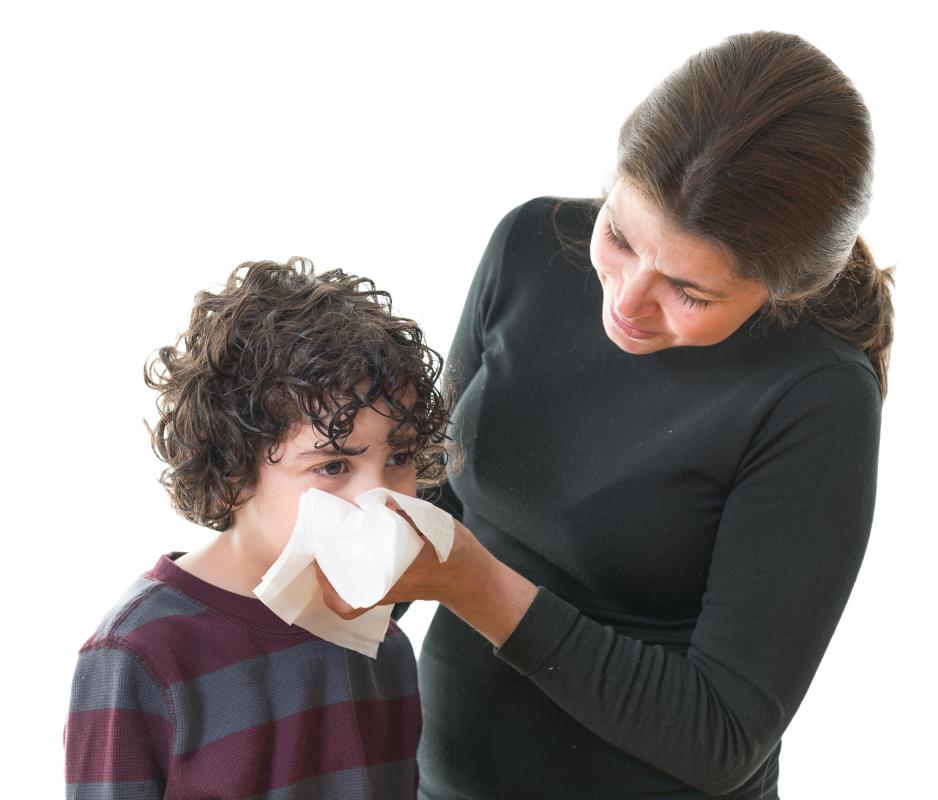At TheHealthBoard, we're committed to delivering accurate, trustworthy information. Our expert-authored content is rigorously fact-checked and sourced from credible authorities. Discover how we uphold the highest standards in providing you with reliable knowledge.
What is the Immune System?
Without it, we would all be forced to live in sterile environments, never touching each other, never feeling a spring breeze, never tasting rain. The immune system is that complex operation within our bodies that keeps us healthy and disease-free.
Few systems in nature are as complicated as the human immune system. It exists apart from, and works in concert with, every other system in the body. When it works, people stay healthy. When it malfunctions, terrible things happen.

The main component of the system is the lymphatic system. Small organs called lymph nodes help carry lymph fluid throughout the body. These nodes are located most prominently in the throat, armpit and groin. Lymph fluid contains lymphocytes and other white blood cells and circulates throughout the body.
The white blood cells are the main fighting soldiers in the body's immune system. They destroy foreign or diseased cells in an effort to clear them from the body. This is why a raised white blood cell count is often an indication of infection. The worse the infection, the more white blood cells the body sends out to fight it.

White and red blood cells are produced in the spongy tissue called bone marrow. This substance, rich in nutrients, is crucial for properly functioning immunity. Leukemia, a cancer of the bone marrow, causes greatly increased production of abnormal white blood cells and allows immature red blood cells to be released into the body. Other features, such as the lowly nose hair and mucus lining in the lungs, help trap bacteria before it gets into the bloodstream to cause an infection.
B cells and T cells are the main kinds of lymphocytes that attack foreign cells. B cells produce antibodies tailored to different cells at the command of the T cells, the regulators of the body's immune response. T cells also destroy diseased cells.

Many diseases that plague mankind are a result of insufficient immunity or inappropriate immune response. A cold, for instance, is caused by a virus. The body doesn't recognize some viruses as being harmful, so the T cell response is, "Pass, friend," and the sneezing begins.
Allergies are examples of inappropriate immune response. The body is hyper-vigilant, seeing that evil pollen as a dangerous invader instead of a harmless yellow powder. Other diseases, such as diabetes and AIDS, suppress the immune system, reducing the body's ability to fight infection.

Vaccines are vital in helping the body fend off certain diseases. The body is injected with a weakened or dead form of the virus or bacteria and produces the appropriate antibodies, giving complete protection against the full-strength form of the disease. This is the reason such disorders as diphtheria, mumps, tetanus and pertussis are so rarely seen today. Children have been vaccinated against them, and the immune system is on the alert. Vaccines have also been instrumental in eradicating plagues such as smallpox and polio.

Antibiotics help the body fight disease as well, but doctors are more cautious about prescribing the broad-spectrum variety, since certain bacteria are starting to show resistance to them. The next time you hug a loved one or smell a rose, thank your immune system.
AS FEATURED ON:
AS FEATURED ON:



















Discussion Comments
This was a great article and I think everyone should think about their immune systems.
I am a lupus patient/ My work environment is affected by rhizopus nigricans in a small library. I have been having difficulty breathing and am constantly having chronic coughing, post nasal phlegm, bleeding from my tongue, lips, inner jaws, between my teeth, in addition to ear infections, throat infections headaches. Can this be caused by this fungus and what should I do for relief?
Exercise helps the lymph system move its fluid. Is there any other way it aids the immune system?
Could you please describe the pharmacology behind strengthing the immune system with exercise?
Running is a great way to boost our immune system. With running, immune cells become strengthened and they can better protect us against viruses and bacteria.
Post your comments